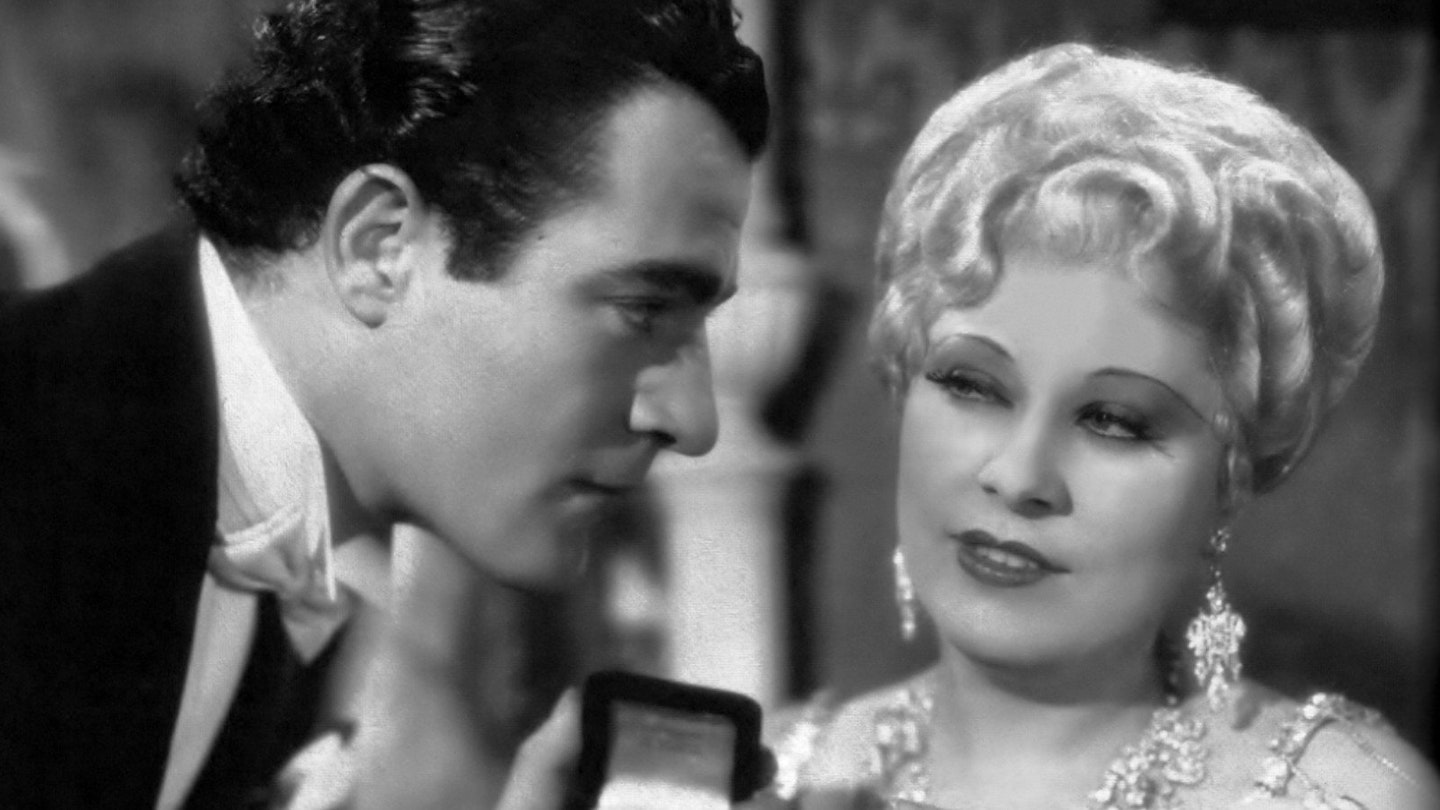Having made her screen debut with a cameo in Night After Night (1932), Mae West sought again to bring her controversial 1928 play Diamond Lil to the screen. However, Will H. Hays had already blocked one proposed adaptation in 1930 and he was more determined than ever to protect American audiences from such smut.
Realising that the treatment for Ruby Red that West had concocted with John Bright (who had confirmed his crime credentials with The Public Enemy, 1931) was only a shallow revision, Hays threatened to close the picture down and it took Paramount chief Adolph Zukor's personal intervention to salvage the project, minus its references to white slavery, the Salvation Army and the Brazilian origins of Gus's accomplices, lest they jeopardised good relations with a thriving movie market (which Soviet Russia was not).
Reluctantly accepting the Motion Picture Production Code ruling, West nevertheless succeeded in sidelining Bright (who wanted to emphasise the story's criminous aspects) after a Hays representative suggested that she concentrated more on the comedy than the melodrama. Thus, she completed the final drafts with Harvey Thew and got away with keeping the occasional celebrated line, including You can be had,' and Why don't you come up some time and see me?', both of which were delivered to a young Cary Grant.
West tried to take credit for discovering Grant, but he had already made several films, including Marlene Dietrich's Blonde Venus. However, the success of She Done Him Wrong - which earned over $3 million worldwide from a $200,000 budget - put him firmly on the road to stardom, having taught him the timing and sensitivity to strong female co-stars that would make him such a screwball natural.
But it was West who made all the headlines, with her voluptuous charm and unique delivery style turning her overnight into the Talkies' first female comedy star. She reunited with Grant on I'm No Angel, which reprised her trademark blend of self-assurance and self-abasement, both to celebrate and caricature her sensuality and convey her disdain for drooling males. But the 1934 Code effectively ended her screen career.
